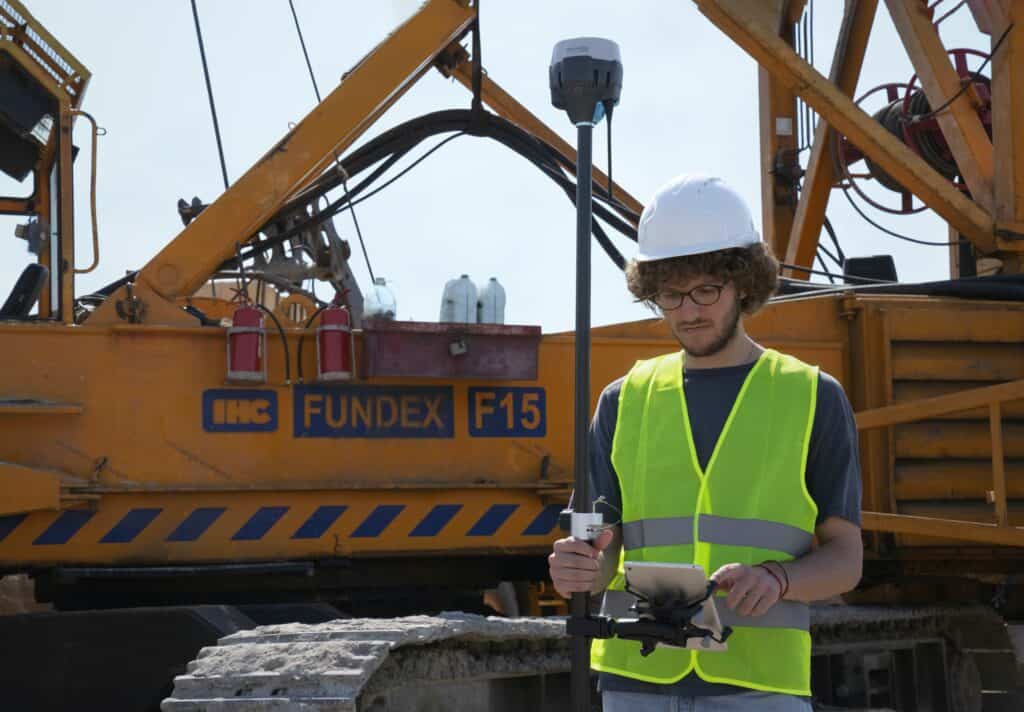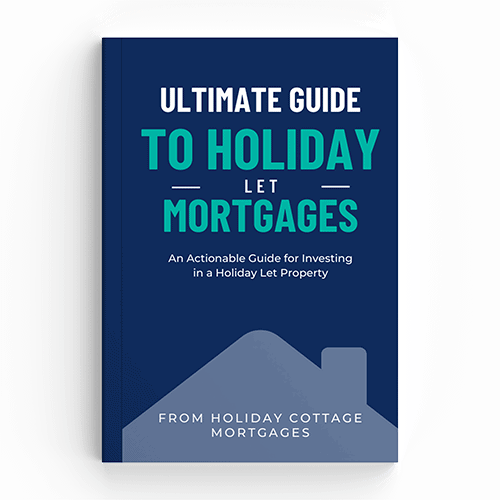Whether we’re talking about a modern city apartment or beautiful house by the coast or countryside, there are plenty of new builds which are perfectly suited – and some specifically targeted – for holiday letting.
It’s a common situation and one that can result in an excellent business outcome as the right type of modern, new build property in the right location can be perfect for holiday letting.
However, most people don’t have the luxury of buying such new build properties in cash, which means you will most likely need a holiday let mortgage and that is what this article is about, as the process may prove a little more complex than you’d first imagine.
In this article we explore the nuances that surround new build holiday let mortgages and provide some context on the things you should be aware of and consider before handing over your reservation money.
Timing is critical
Timing is key with new build properties because it’s difficult to secure a holiday let mortgage if the construction is far from complete.
To secure the property, the builder will probably ask you to pay a non-refundable commitment fee which could cost around £5,000. The issue is, at the point of paying this deposit, you won’t have any guarantee of successfully getting a holiday let mortgage, so you will be at risk (even during this very first step) of losing a significant amount of money.
Next, the builder will be pushing you to formally exchange contracts on your holiday let purchase early, to help raise funds to continue the building project. Completion may still be months away, and getting pushed back each time you ask. The problem that arises is that to secure a mortgage, you need a surveyor to inspect the property and deem it suitable for lending. Of course, if the property isn’t complete – whether it be half built, missing the roof or still a pile of bricks – the surveyor can’t fully do their job.
Mortgage lenders do understand that unfinished construction is to be expected with new build properties. So, the surveyor will visit the property site and say, “We’ll give you a mortgage offer now but will have to come back before completion to check that the property’s been built according to the plans.” But serious problems can emerge with this scenario: imagine that the mortgage is issued for six months, but the building work gets delayed, and completion isn’t expected for eight months. Your mortgage offer expires, and your lender won’t extend it as they no longer offer holiday let mortgages. If you have already exchanged contracts, then you’re tied into a major financial commitment with the builder.

Even without building work being delayed, so much can change during the period in which the building work is being finished that there’s a huge risk. Just a few examples of this are:
- You go back to the lender to renew or extend your mortgage offer, but the lender doesn’t accept holiday let mortgages anymore.
- You lose your job, or your income lessens and you’re unable to pay the mortgage.
- You’re stricken with illness and can’t work or some other situational change that the mortgage lender doesn’t like.
For all of the above, if you’ve already exchanged contracts, you’re tied into a financial commitment to pay the builder and now can’t get a mortgage to provide the funds.
For these reasons, you’ll find that difficulties arise with new build properties when they aren’t anywhere near being finished as too much can change within the time frame.
The key thing to remember is that timing is key; if you want to secure a holiday let mortgage on a new build, you want the building work to be either fully or almost complete before you apply.
Structural warranty
Any new build property should come with a 10-year structural warranty and it’s important to understand that it needs to be a specific type of warranty that the mortgage lender will accept. There’s a number of companies that can provide the warranty, but some are not accepted by certain lenders and in some cases, builders avoid getting one altogether because it incurs a substantial fee.
The surveyor undertaking the warranty will visit the property many times to check that the walls, roofing and so on are structurally sound. Mortgage lenders will want assurance that the new build property won’t crack and fall to the ground within a few years. The 10-year time period is deemed safe; if a building is still standing after 10 years, it has proven to be sufficiently solid.
We’d advise buyers to check that there’s a 10-year warranty that comes with the building, find out who the warranty provider is, and to make sure that the mortgage lender will accept that warranty.
Builder donations

The issue of builder donations (or contributions) can raise questions. Imagine the builder says, “We’ll pay your stamp duty” or “We will give you 5% towards your mortgage deposit.” The builder is actively giving you money to help you to buy the property; this can sound enticing but let’s face it, a bit odd, and for that reason, mortgage lenders are very sceptical.
There’s been a history of fraud around the issue of ‘helping people’ to buy a new house; dishonest builders teamed up with solicitors and surveyors to inflate the value of the properties. The scheme involved valuing the property in question far higher than it was worth. Let’s look at an example:
You have a new apartment being built that’s worth £200,000. The builder, surveyor, and solicitor team up to value it at £300,000. They will then say to the buyer, “We’ll give you £100,000 cash back.” What happens is that the customer buys the property with an 80% or 90% mortgage based on the £300,000 valuation and obtains a £250,000 loan from the lender and then gets £100,000 cash back from the builder so now they have a new build property and £50,000 of cash in their bank accounts! Someone somewhere has magicked money out of thin air. All of a sudden, you find out that the property isn’t worth £300,000 after all but £200,000. The lender then realises, “I’ve just lent you £250,000 on a property that’s only worth £200,000.”
Essentially, this was a huge con scheme which now means that any time a developer wants to offer an incentive to a customer to buy the property, the amount is capped at 5%. Some mortgage lenders won’t allow the ‘donation’ scenario at all.
Essentially, if there’s a builder donation offered, it’s vital that you:
- Check that the donation is no more than 5% of the property value.
- Check that your mortgage lender will accept the donation.
Proximity to commercial operations
It’s common to find that new build properties are located close to commercial buildings such as shops and pubs.
You’ll often see a block of modern apartments being built above a ground floor of cafes, restaurants, and shops, for example. The same goes for holiday homes located within a new build development, as there are often new cafes and shops built especially for residents. Of course, the reasoning is that it’s appealing for people to have easy access to amenities such as a Costa Coffee, Tesco Express or Post Office.
However, the closeness to busy outlets poses an issue for holiday let properties. Mortgage providers are reluctant to lend to holiday properties that are too close to businesses that are potentially noisy and busy and could therefore make a repossession and subsequent sale difficult.
The advice we’d give is to check, ahead of buying a new build property, what the plans are for commercial buildings being included, and where your flat or house is located in relation to them. If you’re buying an apartment on the top floor or a house that’s streets away from potential disturbance, you’ll be ok, but if it sits directly over a restaurant you might be in trouble.
Investor led
The concept of ‘investor led’ new builds is a fairly new one, whereby developers can do themselves a disservice by directly marketing their properties as buy-to-let investment opportunities.
Let’s look at an example: there’s a beautiful block of new build riverside apartments, but the builder markets them as potential buy-to-lets. As a result of targeting the buy-to-let community, the surveyors raise concerns because they assume that generally, people won’t want to buy a flat and live in it if the block is mostly full of rented accommodation and so won’t make a purchase. After all, who wants to buy a property where the tenants could be loud, disruptive, and dirty – this might be a negative stereotype, but it’s true that there’s far bigger risk of people being careless and dismissive of neighbours’ feelings if they’re renting the property short-term.
So, it’s not difficult to understand why mortgage providers refuse to lend on such properties (unless it’s for a buy-to-let mortgage, of course!).
This scenario is known as ‘investor led’ and the incentive to buy is focused solely on the building’s potential to generate a good financial return. Read the marketing material carefully and ensure it’s targeting regular households and not just buy-to-let.
To conclude
New build properties have all the potential to work brilliantly as holiday let properties, as long as you’re aware of the potential pitfalls discussed in this article. They provide a blank canvas for your holiday let; often complete with modern appliances, attractive architectural features, and stylish kitchens and bathrooms, they can make for a premium holiday let.
If you’re unsure about a new build property or are ready to proceed on your holiday letting journey, get in touch by calling 01372 502 001 or visting our Contact Us page and we can help you to get started.
Read to get your free initial assessment?

Get your copy today!
Free eBook: The Ultimate Guide to Holiday Let Mortgages
How much can you borrow?
Use our free mortgage calculator created by the UK's leading holiday let mortgage specialists, and find out how much you can borrow today!
FCA disclaimer
The information contained in this article is accurate at the time of writing, based on our research. Rules, criteria and regulations change all the time and so please speak to one of our Consultants to confirm the most accurate up to date information. Nothing in this article constitutes financial advice. You understand that by clicking any external links on this page that you will be leaving the website of Holiday Cottage Mortgages and we cannot be held responsible for the content of this external website. Please always consult your accountant or solicitor for all financial, taxation or legal matters.